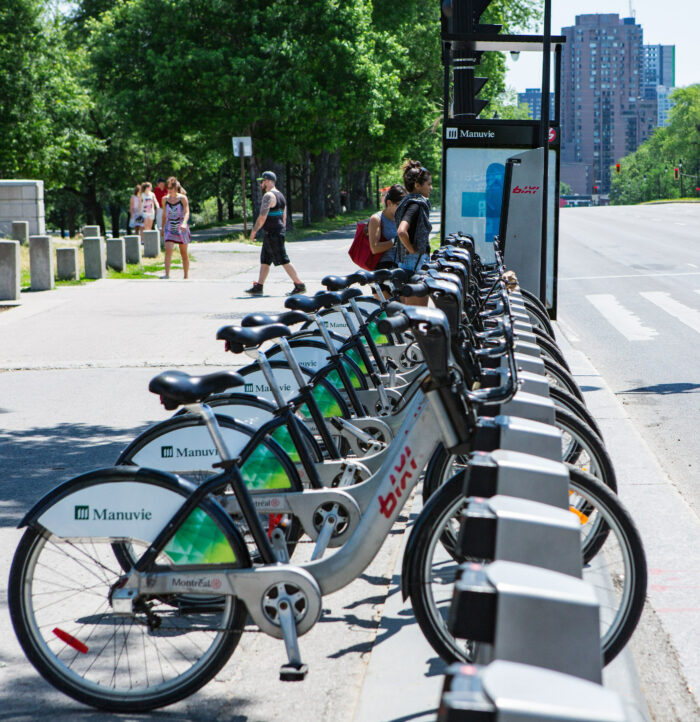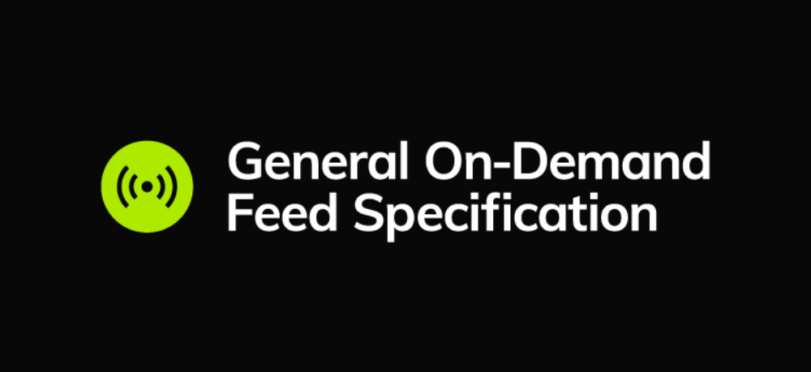2023 in Shared Mobility, the Year of v3

The shared mobility ecosystem is constantly growing and adapting. As GBFS is an open specification, it is developed and maintained by the community of producers and consumers of GBFS data. This means that the specification has to extend its features and capabilities over time as required by the GBFS community and the industry.
v3.0-RC is the third major release of the GBFS specification. Major releases group breaking changes that have a relevant impact on the way the spec currently works, examples might include changing optionals fields or endpoints to be required or changing the data type of an existing field. This time we have grouped over a dozen breaking changes that:
- Allow the spec to adapt and reflect a growing ecosystem including the addition of new vehicle types
- Improve data structures to handle service information more easily and effectively, including an easier way to include information in multiple languages.
- Ease the access to contact information from data producers and operators.
- Enable new information features such as revealing prices for reserving a vehicle.
- And many other small improvements for the GBFS spec.
You can find a brief description of each individual change below:
- Undoubtedly the largest change in this version, the beast that is geofencing! What is geofencing you ask? Geofencing allows operators to define areas that might have certain rules applied to them, like speed limits or no ride zones. The file has been completely overhauled in the name of specificity and exhaustivity. Stay tuned for more information on how to use this scary file (although we hope that with these changes it isn’t so scary)!
- What’s in a name? A specification requires specificity, of course! This change requires that all enumerated values in GBFS feeds are lowercase, a small change that will ensure our trusty GBFS Validator runs smoothly.
- Many shared mobility services allow a traveler to put a hold on a vehicle, with GBFS v3.0-RC you can now see how much that hold will cost, whether it is a flat rate or a per-minute charge.
- v1.1 added the option to add a contact email to report any technical issues with the data feed. This new change in v3.0-RC makes this mandatory. Now we can be sure we all have some way of reaching the technical team so travelers can have the best quality data possible.
- While some GBFS feeds already show information in multiple languages, it wasn’t always the simplest thing to do, so why not make things easier? This change removes the need to duplicate complete datasets for each individual language and opts for in-line translations.
- Sometimes, shared mobility companies don’t only operate in a single city, potentially having operations in a variety of different cities across the world. v3.0-RC adds an endpoint for everyone publishing more than one GBFS dataset to share a URL with all of these feeds in one single place, making it so much easier to access and group information.
Changes to data structures #407
- Consistency makes reliability possible. This change adapts some parts of the spec so that they can be up to date as the industry grows and evolves, matching recent changes in other parts of GBFS, all for the sake of greater consistency.
- Does my bike have a basket? How do I lock my scooter? Sometimes the more information, the better. This change adds the option to provide a description of the vehicles including their special features, how-tos or any other important information.
- The shared mobility family keeps growing! To make room for the new family members, this change introduces cargo Bikes, seated scooters and standing scooters as new vehicle types. It also includes new fields so that users can know the number of wheels the vehicle has, its maximum allowed speed and its power capacity.
Change to OSM opening_hours format for times and dates
- Being on time is important! To make this easier, we’re matching Open Street Maps’ opening hours format, so you can know if you can still make that late night trip back home with your favorite vehicle sharing service.
Required rotation of deeplinks vehicle identifier
- Privacy is paramount. As introduced in previous versions (v2.0), rotating vehicle IDs help protect traveler privacy, restricting the possibility to track trips. This change extends the implementation of rotating IDs to deeplinks.
Add Phone Number to Field Types
- Another small but important change! With v3.0-RC we’re using a new data format to write phone numbers so that you can always know how to reach customer service.
Remove string field type from price field
- When we talk about money, we want it to be crystal clear! That’s why this change makes sure that pricing information is always displayed in positive numbers, so you can always know the right price.
Semantic Changes: Bike becomes Vehicle
- Yes, it all started with bikes! But since shared mobility services are growing and becoming more and more diverse, this change replaces the word “bike” with “vehicle” to make room for all kinds of modes.
File requirements and Clarifying changes
- More housekeeping to make sure things run smoothly after previous changes to the spec. This includes renaming fields to get rid of ambiguity, clarify language, and changing some fields from optional to required.

For now, these changes are considered to be a Release Candidate which means that v3.0 will become the official Current Version once the changes are fully implemented in a public feed. Are you implementing any of these changes? Let us know at sharedmobility@mobilitydata.org. MobilityData will continue working to maintain and improve the GBFS specification in collaboration with the shared mobility community. To do this, we look to grow an already engaged and passionate community, so make sure you jump in the conversation by joining our slack channel or visiting the official GBFS repository.



